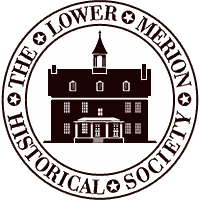State Laws

It was not Until April 4, 1809 when the state of Pennsylvania enacted a law to deal with the education of the poor. By this act, the county commissioners were to annually direct their assessors to every township, ward and district. Here the assessors would gather the names of the children, between the ages of 5 to 12 years, from parents who could not afford to pay for education. After providing the list of names to the commissioners and after the commissioners decided on additions and alterations, the assessors would inform the parents to send the children “to the most convenient school, free of expense.” The assessors then sent the lists of names to the teachers of the schools within their area
whose duty it shall be to teach all such children as may come to their schools, in the same manner as other children are taught…
According to the 1809 state law, the teachers were to record in a book the attendance of the children and the amount of stationary used. From the attendance books the teachers were to calculate, based on the rates of tuition in the said school, the amount to be paid from the county treasury, subject to the approval of the trustees of the school or “three reputable subscribers” and the county commissioners.
On March 31, 1812, the state General Assembly passed a law dealing with the free education of the poor in Philadelphia. This law was in response to special circumstances which prevented poor children from receiving a “free and impartial education.” The 1812 law (as the 1809 law) reiterated the duty of the county commissioners to select teachers, to fumish stationary and school books, and a new step, to “establish public schools” with approved regulations.
While the Lower Merion Academy was open to Township in habitants, it was not known to be designated a “public school” in 1813. Therefore the mechanism existed within the state to accommodate the education of the poor, but it is as sumed the actual implementation was, at best, left to pockets of enlightened county commissioners. Jones’ trust provided
…without any Expense or Charge whatsoever unto said Children their Parents, Friends, Guardians or others.
It is not known, at this time, if any county funds supported education of the poor in the Township before Jones’ will. One would believe no funds were used because of the enactment of his will by 1812 and the sustained success of the Lower Merion Merion Academy into the 20th century.

